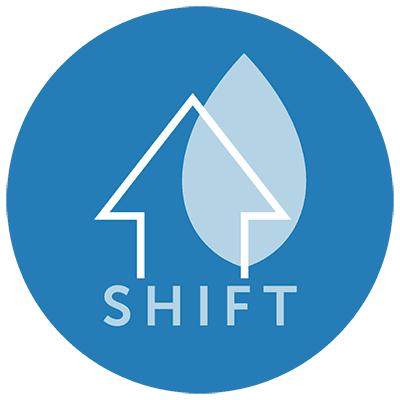
The Government’s recent Green Finance Strategy states, “The Government expects all listed companies and large asset owners to be disclosing in line with the Task Force on Climate-related Financial Disclosures (TCFD) recommendations by 2022.’ There is no specific requirement on social landlords yet, but given the threats that climate change poses to housing stock and the supply chain, it may be as well to follow the recommendations.
Climate change poses a significant risk to business, but most organisations are still unsure how exactly it will impact their ability to operate. At SHIFT, we have been looking into the latest developments in climate-related financial disclosures and how the environmental assessment we have been providing to our landlords for the last 12 years will put them ahead of this new legislative direction.
TCFD have been developing voluntary, consistent climate-related financial risk disclosures for use in organisations to provide information to investors, lenders, insurers, and other stakeholders. With two-thirds (67%) of UK corporates disclosing climate-related risks and opportunities in their 2019 annual reporting, it is clear there is a growing demand for decision-useful, climate-related financial information.
TCFD recommend that four key areas are included in an organisation’s climate-related financial risk disclosure. Firstly, it is crucial that the respective roles of the board and management team in managing the risks and opportunities that climate change mitigation and adaption poses are clearly set out. Specific things to include are:
-
the frequency by which the board are informed about climate-related issues
-
whether the organisation has assigned climate-related responsibilities to management-level positions
-
how and who in senior management monitors climate-related issues
-
how senior management / board oversees progress against goals and SMART targets for addressing climate-related issues
Secondly, organisations should disclose the climate related risks and opportunities they have identified over the short, medium, and long term. Organisations should describe how climate-related issues serve as an input to their financial planning process, the time period(s) used, and how these risks and opportunities are prioritised. TCFD also states that within an organisation strategy, the impact of climate change on their supply chain should also be considered.
Thirdly, a disclosure should describe the organisation’s processes for identifying and assessing climate-related risks. Organisations should explain their processes for assessing the potential size and scope of identified climate-related risks.
Finally, TCFD recommends the disclosure of the metrics used by the organisation to assess climate-related risks and opportunities in line with its strategy and risk management process. TCFD suggest that metrics are sourced that are related to
-
water
-
energy
-
land use
-
waste management
-
‘material work’
In the words of Michael Bloomberg, the chair of TFCD, “financial disclosure is essential to a market-based solution to climate change. A properly functioning market will price in the risks associated with climate change and reward organisations that mitigate them.”
Social landlords may be interested to know that SHIFT accreditation involves senior level commitment to climate change related improvements, as well as a risk assessment of impacts on stock, offices and supply chain. Over the last 12 years SHIFT has been driving improvements in identifying, assessing, and managing climate-related risks through quantifying and benchmarking flood and overheating risk in both housing stock and offices.
If would like to find out more about the benefits of SHIFT for climate-related financial disclosure or other reporting requirements such as Streamlined Energy and Carbon Reporting (SECR), contact us at [email protected] or 07718647117
